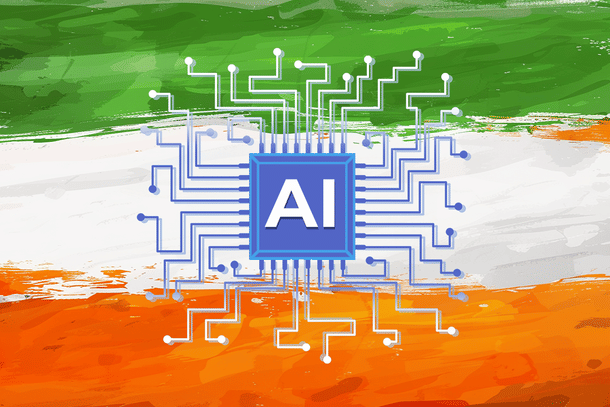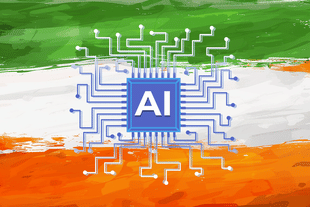Tech
Why MeitY Will Be An Important Ministry In Modi 3.0
Ananth Krishna S
Jul 01, 2024, 12:56 PM | Updated Aug 29, 2024, 01:04 PM IST
Save & read from anywhere!
Bookmark stories for easy access on any device or the Swarajya app.


The Ministry of Electronics and Information Technology (MeitY) has been the source of many controversies in the previous term of the Modi Government — whether it be on the issue of the new IT rules, the Data Protection Bill or the move to create ‘fact-checking’ at the central level, the glare of attention, along with that of litigation was on MEITY. The notification of IT Rules, 2021 effectively transformed the governance of the internet, and that shift has not gone down easy on more than a few.
In Modi 3.0, MeitY will have an even more outsized role with increasing concern over the use of Artificial Intelligence (AI), the dominance of Big Tech in India as well as increasing cyber fraud andcrime. The proposed Digital India Act (DIA) which is set to replace the outdated Information Technology Act, 2000 (IT Act) has the potential to transform the governance from the late 20th century metrics to a modern, future-ready governance for the internet and other communication technology.
MeitY under the NDA
It was the National Democratic Alliance (NDA) Government led by Shri Atal Bihari Vajpayee that created the Ministry of Information Technology under the then-Parliamentary Affairs Minister Shri Pramod Mahajan in 1999.
One of the first tasks that Mahajan undertook was to push for the Information Technology Bill, 2000. The legislation had been necessitated by the booming “internet” that had just started to take off in the late 90s, and the lack of a legal regime to regulate the sector.
It was primarily based on the United Nations Commission on International Trade Law (UNCITRAL) Model Law on Electronic Commerce (1996) which aimed to give electronic agreements documentation equivalency to paper documentation or agreements. The IT Act, 2000 was by no means perfect (it had multiple poorly drafted legal provisions) but had represented a forward in the regulatory regime.
Under the Modi Government, the Department of Electronics and Information Technology was elevated to a separate cabinet ministry in 2016 (the nascent Department of Information Technology had been merged back with the Ministry of Communication in 2001).
The MeitY’s role of regulating the internet and services offered on it have acquired even more importance as internet penetration rose from 13.5 per cent in 2014 to over 50 per cent and rising in 2024. Compounding its importance is that our digital economy is set to reach 1 trillion USD by 2030, but it is still dominated by foreign Big Tech players for the large part.
The domination of Big Tech players in the domestic sector is not just a concern of sovereignty over internal affairs, but the outsized profits made by companies on domestic entities' sales are also an active point of consideration.
The Competition Commission of India (CCI) had earlier already found that Google’s exclusionary policies were anti-competitive. Though the order is still under litigation, a more substantial policy change in the form of the Digital Competition Bill (DCB) is under the anvil as well.
AI revolution and its tidings
While Artificial General Intelligence (AGI aka AI with human-equivalent intelligence) is a bit away, the rise of ‘Chat-GPT’ and other Large Language Models (LLMs) have raised more than a few concerns. In fact, the AI-edited fake video of Union Home Minister Amit Shah linking the BJP’s victory to the scrapping of reservations has done substantial damage. Considering this, the regulation of AI and AI models acquire even more significance.
The government had in March announced a Rs 10,000 crore ‘IndiaAI’ programme that aims to, among other things, enable access to physical infrastructure including 10,000 GPUs.
The attempt to create indigenous Large Multimodal Models (LMMs) through the India AI Innovation Centre as well as the open-source efforts to bridge language gaps through Bhashini are crucial. Yet, the fact remains that the domestic efforts do not compare to any of the commercially available AI services from US based companies or the efforts of PRC-based companies.
Under Ashwini Vaishnaw (who has returned as cabinet minister) and MoS Rajeev Chandrashekar, preliminary steps were taken to regulate AI models in the country, but the IT Act remains thoroughly outdated to deal with the current concerns.
Digital and tech sovereignty
MeitY has an important role to play in the emerging AI-dominated world — it has to take steps that ensure India’s digital and technological sovereignty.
BJP’s 2024 manifesto already makes it quite clear that this is the direction that the Modi government intends to implement — it promises to ensure the ‘safety of every Bharatiya on the internet’ and ‘strengthening Bharat’s digital sovereignty’; and ‘build domestic capacity to ensure tech sovereignty.’ These are not domains that should be taken lightly at all, the bias that LLMs can develop can have very real consequences on social media and narrative building.
The Digital India Bill should then put these concerns at the forefront in its formulation. The Indo-US relations may be affected by these considerations, but it remains crucial for India’s sovereign interest to regulate Big Tech in India. The Digital Personal Data Protection Bill which had initially proposed data localisation requirements, has been diluted to whitelisting and then to blacklisting, possibly due to the US flagging them.
The DIA cannot afford such compromises — it has to put India and its sovereign interests front and centre. The Digital Competition Bill, being formulated by the Ministry of Corporate Affairs is an important piece of the puzzle that MeitY ultimately has to take the lead on. The resistance from American Big Tech would be nothing to scoff at.
Ashwini Vasihnaw and Jitin Prasada (the new MoS) will definitely have their hands full in an attempt to formulate a cohesive approach. It is crucial for the Modi government and the country itself that the right steps are taken.





